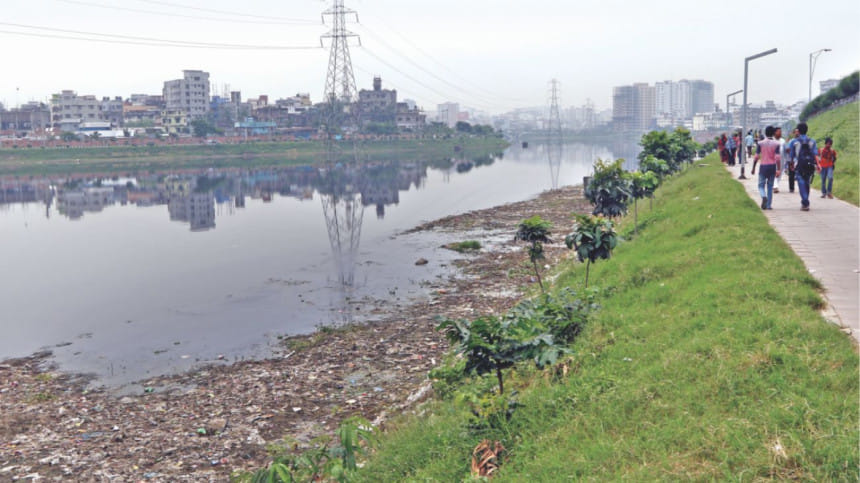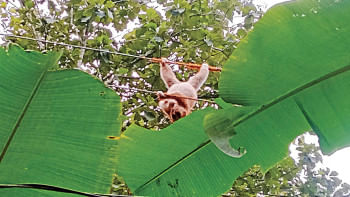Stop illegal earth filling at Hatirjheel

The illegal filling of a portion of Hatirjheel waterbody in the capital must be stopped immediately, said speakers at a discussion yesterday.
They also said the government must investigate and take action against the authorities of the Dhaka Elevated Expressway in case of any violation of the law on their part.
Speakers alleged that the authorities of the Dhaka Elevated Expressway project were filling the Hatirjheel waterbody in Eskaton with sand. A portion of the lake was filled to construct pillars for the expressway.
Despite concerns raised by urban development experts, environmentalists, and rights activists, government agencies such as Rajuk and the Department of Environment (DoE) have failed to take necessary action to prevent the filling, they said during an online discussion, titled "Planning Impact of Elevated Expressway on Hatirjheel", organised by Institute for Planning and Development (IPD).
The recent earth-filling of a portion of the lake by the Dhaka Elevated Expressway authorities' puts it and the surrounding areas at risk of waterlogging.
They highlighted the potential environmental impact of the elevated expressway construction and the violation of water conservation law.
Ahmed Kamruzzaman Majumder, dean and chairman of the Department of Environment Science at Stamford University, said Hatirjheel has been recognised as the "lungs of Dhaka" by the High Court, as it helps mitigate flooding and reduce air pollution in the city.
"However, the recent earth-filling of a portion of the lake by the Dhaka Elevated Expressway authorities' puts it and the surrounding areas at risk of waterlogging," he said.
He also criticised the lack of necessary permissions obtained by the Dhaka Elevated Expressway authorities from Rajuk and the DoE, and the failure of other government offices to stop the filling.
Addressing the discussion, IPD advisor Professor Akhtar Mahmud said the filling of a portion of Hatirjheel and the construction of an elevated expressway through Panthakunja Park is being done without proper planning.
He criticised the decision, calling it a "suicidal" one and questioned how such a project could be implemented without coordination with the relevant authorities as per the Town Improvement Act of 1953.
Prof Akhtar further demanded that those responsible for such destruction of the environment and urban areas should be held accountable.
Adil Mohammed Khan, executive director of IPD, warned that the construction work of the Dhaka Elevated Expressway will not only affect Hatirjheel and Panthakunja Park but also severely disrupt traffic and livelihoods in the surrounding areas.
He emphasised the need for projects to be conducted transparently and following the law to prevent any further damage to the city's environment.
IPD Director Ariful Islam also spoke at the discussion.

 For all latest news, follow The Daily Star's Google News channel.
For all latest news, follow The Daily Star's Google News channel. 



Comments